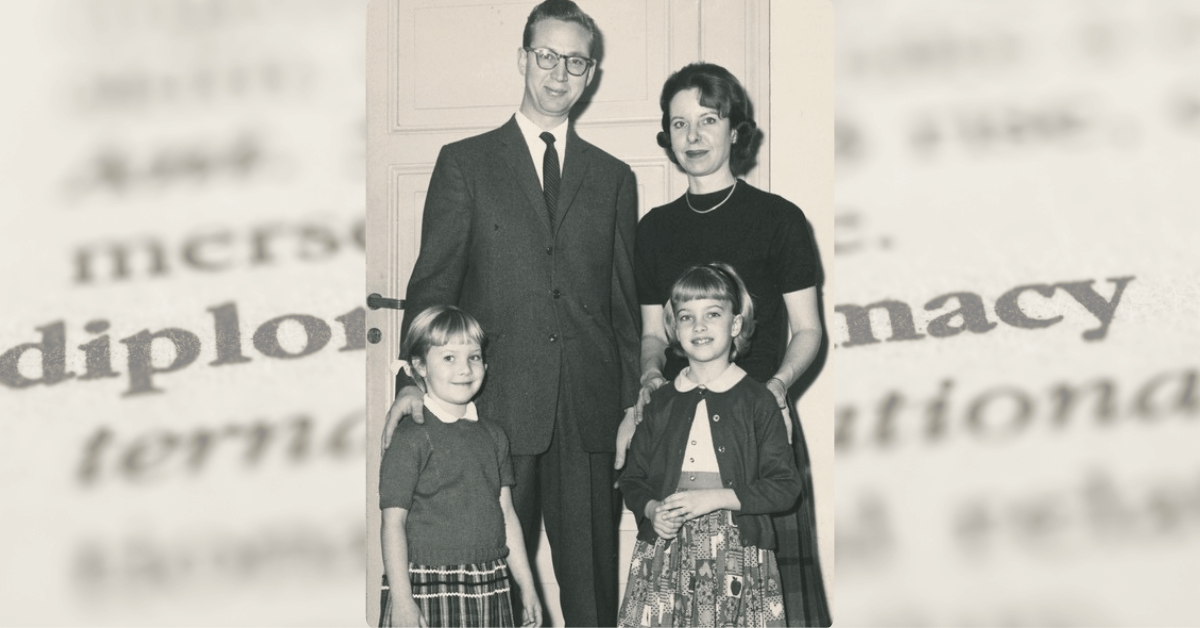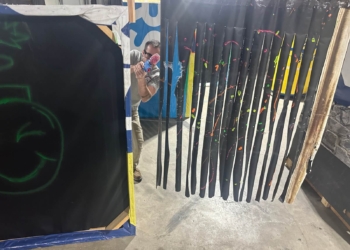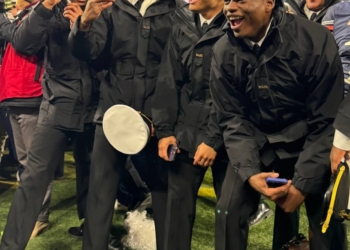In “Embassy Kid: An American Foreign Service Family Memoir,” author J.K. Amerson López’s moving memoir of a life growing up around the world as the child of a diplomat, readers are taken on a journey not only through a childhood, but also through the history of America’s global impact. Spanning life in Caracas, Milan, Bologna, Rome, Bogotá, Madrid and finally, the United States, “Embassy Kid” is a well-researched, compelling look at life and American foreign policy at the height of the Cold War.
López’s father served as a press attaché as part of the broader mission to share American culture with the world. The book includes vivid accounts of protests in Venezuela against then-Vice President Richard Nixon as well as recounts events where the personal meets the newsworthy, such as when the family met President Kennedy during his historic trip to Rome.
López’s work gives a nuanced, behind-the-scenes look at the extraordinary practical and cultural work of embassies, as well as how that work shaped her childhood. “I’ve been writing parts of this story for at least 20 years,” she said. During her research, she was put in touch with Association for Diplomatic Studies and Training, whose vast collection of oral histories were instrumental in her process. Her mother and father, both now deceased, also bequeathed binders full of their letters and journals to her, which she relied on to infuse their perspectives into the narrative. “I felt like I was in conversation with my parents the whole time.”

The book is both a record of her life as well as a search for her own identity as a child with a global upbringing. “Like a lot of people, we look back and try to figure out what happened, especially as that life was so different from my adult life in the United States. Sometimes it seemed like a whole different universe,” López said of her time growing up overseas. “The writing was an exploration of the question, ‘where am I from?’”
As she wrote, she came to an answer. “‘Where I am from’ is those places and those years of travel. Wherever I am from is wherever I happen to be, and that feels very good as well.”
“Embassy Kid” also shows how often, the formal paid positions of the men were enhanced by the crucial yet unpaid diplomatic work of the wives. Her mother hosted numerous events and parties in their home, as well as navigated the political currents. “As the wife of the press attaché, she was presumed to know who was who,” López wrote of her mother. “It would be her job to whisper the name of each person to Mrs. Nixon just before he or she faced the vice president’s wife in the reception line. My father would do the same for Mr. Nixon. They both knew the shortlist—the newspaper publishers, the intellectuals, the political figures.”
López calls her mother the “unsung hero” of the story, whose skills as a homemaker were instrumental in making every new assignment feel like home. “This was not at all her life plan; she just happened to fall in love with this South Dakota farm boy with big dreams. It was his adventure. Never in a million years did she imagine it would be a 20-year career for her,” she said.

She also speaks movingly of the biggest challenge she faced as she grew up: going to college in the United States while her family continued to live elsewhere. “I haven’t left home, home has left me,” López said of her feelings at the time. Understanding how her unique upbringing shaped her life has been the work of a lifetime, and comes across beautifully in her book.
“Especially when I was younger, I didn’t understand the nature of my father’s work or his perspective, or why we were in these different places,” López said. “I thought, for many years, that everyone lived this way.”
An excellent work of personal and political history, “Embassy Kid” is available for purchase at Amazon.
Kate Lewis’ writing has been featured in The New York Times, The Washington Post, The Wall Street Journal, and more. She also writes The Village on Substack, devoted to sharing stories of building community and craft. Find her online @katehasthoughts.
Read comments



































